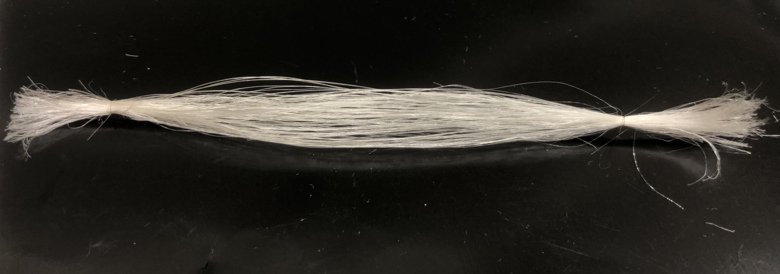Engineered spider silk proteins for biomimetic spinning of fibers with a toughness equal to silk from spiders

Researchers at Karolinska Institutet and SLU have managed to do what nature itself cannot. By using insights of basic biological principles and protein engineering they have managed to increase the artificial silk fibers' mechanical properties, which resulted in fibers with increased tensile strength and two fiber types displayed toughness equal to native spider silks and a yield in line with the requirements for an economically viable industrial bulk scale production.

Spider silk is the toughest fiber found in nature, and bulk production of artificial spider silk that matches its mechanical properties remains elusive. The development of miniature spider silk proteins (mini-spidroins) has made large-scale fiber production economically feasible, but these fibers’ mechanical properties are inferior to native silk. To increase the artificial silk fibers’ mechanical properties, researchers at Karolinska Institutet and SLU have done what nature itself cannot do by using insights into basic biological principles and protein engineering.
These results are presented in a new paper by Anna Rising, senior researcher at the Department of Biosciences and Nutrition, Karolinska Institutet and Professor at SLU, and her group.
Overcoming biological laws
The spider silk fiber’s tensile strength is conferred by protein segments that are tightly packed and zipped together. Spider silk proteins are secreted from the cells of the silk gland so they must be void of long stretches of hydrophobic residues, since such segments get stuck in membranes inside the cell. At the same time, such hydrophobic residues can mediate tighter interactions in the protein zippers, features that are attractive for the generation of strong artificial silks.
Protein production in bacteria can circumvent biological laws that spiders must obey, since they lack the membranes that can trap the proteins in the cell. Building on these insights the researchers designed spider silk proteins that are predicted to form stronger zippers and successfully produced a panel of these in bacteria.
Biomimetic spinning of these engineered spider silk proteins indeed resulted in fibers with increased tensile strength and two fiber types displayed toughness equal to native dragline silks. Bioreactor expression and purification resulted in a protein yield of ~9 g/L, which is in line with the requirements for an economically viable industrial bulk scale production. The proteins the researchers got from 1L bacterial culture would be enough to spin an 18 km long fiber.
